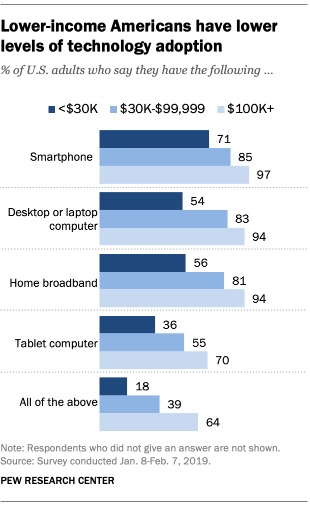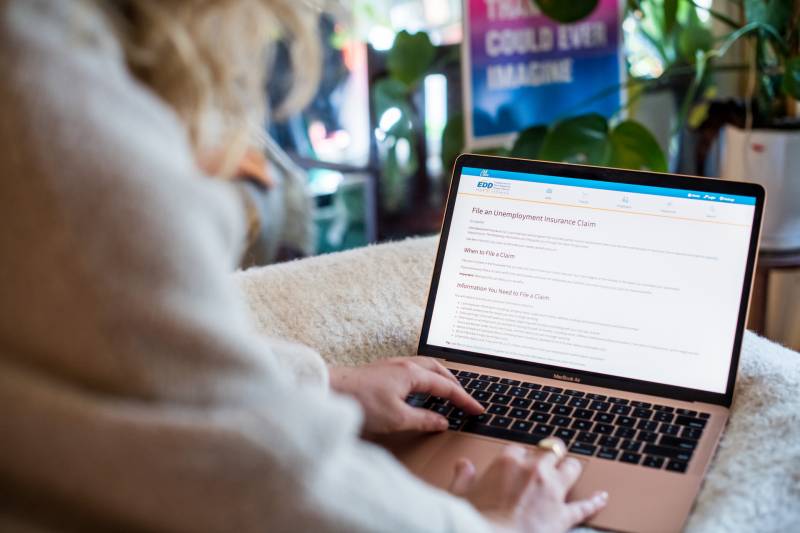While schools and workplaces are switching over to videoconferencing and other tools in response to the coronavirus pandemic, some Americans are left out of the digital shift.
Thirty percent of adults with household incomes below $30,000 a year don’t own a smartphone and more than 40% don’t have home broadband services or a desktop or laptop computer, according to the Pew Research Center.
“For many of us, the most marginalized communities that we seek to serve are also those who are disproportionately affected by the digital divide," says Leana Mayzlina of NTEN, an organization that helps nonprofits use technology more effectively to meet their missions.
"For rural Americans, communities of color, individuals with disabilities, senior citizens, and many others, internet access, the devices to use it and basic digital literacy training continue to be unattainable," she says.
Before moving programming online, Mayzlina suggests some questions for nonprofits as well as communities to ask themselves to ensure the approach is equitable and thoughtful:
-
- What does internet access look like for the communities we serve? Who are we including or leaving out?
- How can we make sure everyone has an opportunity to participate?
- Does our staff have the resources and training to move our programs online in an effective manner?

Here’s a list of additional resources to help those who may be facing the current digital divide.
Bridging Access
This list from the National Digital Inclusion Alliance offers low-cost internet access. Mayzlina says this is designed for intermediaries like nonprofits, since the information requires a background understanding of how some of these policies work.
EveryoneOn — This is an online tool to help individuals find low-cost internet offers as well as devices in their ZIP code. The tool allows users to select their own eligibility criteria, and it has been updated with special offers provided by internet service providers and phone companies, like AT&T, during the current coronavirus crisis.
Local libraries may be closed, but some, like the San Jose public library system, still have open Wi-Fi networks. Just be sure to practice social distancing or connect from the car.
At the federal level, FCC Chair Ajit Pai recently asked internet service providers to take the "Keep Americans Connected Pledge" for the next 60 days. Companies signing on to the pledge agree not to terminate service or charge late fees to anyone because of their inability to pay their bills during this time. The pledge also encourages opening Wi-Fi hotspots.
St. Anthony’s in San Francisco has begun hosting a pop-up Tech Lab. The team is offering charging stations, and access to wifi and computers. The pop-up runs Monday's, Wednesday's, and Friday's from 10 a.m. to 1:30 p.m. from the curb outside 121 Golden Gate Avenue.
Finding Refurbished Devices
PCs for People provides refurbished computers and hotspots to both individuals and nonprofits, along with training classes in limited cities across the U.S. Devices are available for purchase both in-person and online. They also offer 4G LTE service for their hotspot program.
Alliance for Technology Refurbishing and Reuse (AFTRR), a network of refurbishers across the U.S. offering a map locator of their partners. The map provides contact information of local organizations offering low-cost devices to individuals and families.
This article has been adapted from the original with permission from NTEN.
Have something to add to the list? Let us know lsarah@kqed.org

